- posted: Aug. 21, 2023
In the fashion world, high heels have long been a symbol of elegance and sophistication. These stylish shoes can instantly elevate an outfit, adding inches to your height and a dash of confidence to your stride. However, looking at heels from a chiropractic standpoint, wearing heels can potentially have detrimental effects on your spine and overall musculoskeletal health.
High heels are designed to create an aesthetic appeal by altering the position of the foot and redistributing body weight. High heels force your chest forward and your lower back backward, which changes the normal spinal biomechanics and can put excess strain on your lower back and knees. With your body weight shifted forward, there is increased weight on the balls of your feet and the base on your spine. This change in weight distribution can disrupt the natural alignment of your spine and lead to a range of musculoskeletal issues over time.
One of the most noticeable effects of wearing high heels is their impact on posture. As the body tilts forward, the lower back arches more than usual, leading to a condition known as hyperlordosis. This excessive curvature of the lumbar spine can strain the muscles, ligaments, and discs in the lower back, resulting in discomfort and pain. Over time, this altered posture can contribute to chronic back pain and even more serious spinal conditions.
The increased weight placed on the balls of the feet due to high heels can also lead to increased pressure on the lumbar spinal discs. These discs act as cushions between the vertebrae, absorbing shock and providing flexibility and mobility to the spine.
Prolonged high heel use can lead to compression of these discs, potentially leading to herniated discs and sciatic nerve pain. The sciatic nerve, which runs from the lower back down to the legs, can become compressed or irritated, causing pain, tingling, and numbness in the lower extremities.
Wearing high heels alters the natural biomechanics of walking, leading to muscle imbalances and strains. The calf muscles and Achilles tendon can become shortened and tight, affecting ankle mobility and calf flexibility. Conversely, the muscles in the front of the leg, such as the shin muscles, can weaken due to reduced use. These imbalances can contribute to issues like ankle instability and knee pain, as well as increase the risk of falls.
We know; lots of women love their high heels and don’t want to give up this fashion statement. Don’t worry; there are ways to minimize the impact on your spine while still enjoying stylish footwear.
- Choose Heel Height Wisely: Opt for lower heel heights that are around 1-2 inches to reduce the degree of weight shift and maintain a more natural alignment.
- Use Supportive Insoles: Consider using cushioned insoles with arch support to help alleviate pressure on the balls of the feet and improve overall foot comfort.
- Alternate Shoe Styles: Give your feet a break by alternating between high heels and flats throughout the day.
- Stretch and Strengthen: Regularly stretch and strengthen your calf muscles, hamstrings, and hip flexors to counteract the effects of wearing high heels.
- Practice Good Posture: Focus on maintaining proper posture both while wearing heels and during your day-to-day activities.
While high heels can certainly add a touch of glamor to your look, it's crucial to be mindful of their potential impact on your spine. By making conscious choices, listening to your body, and incorporating healthy habits, you can strike a balance between fashion and spine health, ensuring you walk tall and pain-free for years to come.
If you’ve been an avid high-heel-wearer for years and are starting to feel its effects, a chiropractic session at Dr. Gena Chiropractic is the first step toward alleviating the pain and correcting your spine. Call our office at 954-417-5815 to schedule a consultation. Remember, your health is in your hands; our hands are here to help.
Locations
7119 W Broward Blvd
Plantation, FL 33317, US
Office Hours
10:00 am - 1:00 pm
3:00 pm - 6:00 pm
8:00 am - 11:00 am
10:00 am - 1:00 pm
3:00 pm - 7:00 pm
9:00 am - 1:00 pm
3:00 pm - 6:00 pm
Closed
9:00 am - 11:00 am
Closed

